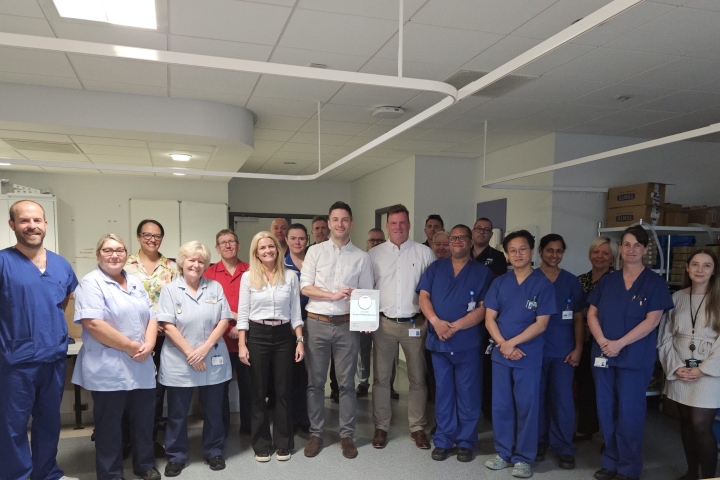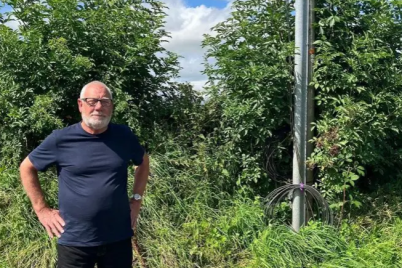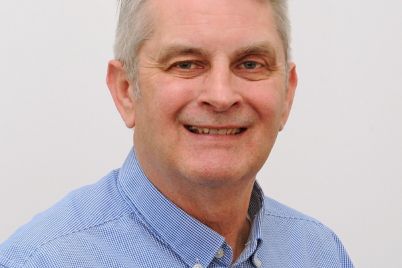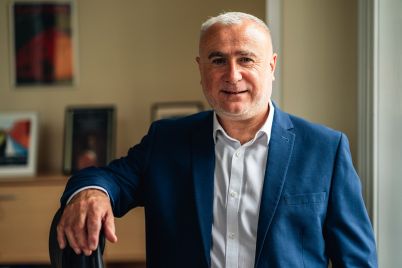Stepping Hill Hospital’s anaesthetic department has received national recognition for its exceptional standards after being awarded accreditation under the Royal College of Anaesthetists’ (RCoA) Anaesthesia Clinical Services Accreditation (ACSA) scheme.
The accreditation demonstrates a commitment to patient safety and high-quality care. The department provides anaesthesia for around 19,000 surgical and maternity patients every year. This includes everything from routine procedures to complex operations, and covers both local or regional anaesthesia, which numbs parts of the body, and general anaesthesia, which renders patients unconscious.
ACSA is a voluntary, peer-reviewed programme that promotes continuous improvement in anaesthetic services. Departments that engage with the scheme are assessed against rigorous standards in patient experience, clinical leadership, and operational excellence.
To achieve accreditation, teams undergo a detailed process. This includes a self-assessment against nationally recognised benchmarks, an on-site review by an expert panel, and submission of supporting evidence. Standards are based on the College’s Guidelines for the Provision of Anaesthetic Services (GPAS), which are developed through a NICE-accredited process.
Dr Kirsty Maclennan, RCoA Council Member, presented the hospital team with a commemorative plaque to mark their achievement.
“I would like to offer my personal congratulations to the entire anaesthetic department on achieving ACSA accreditation,” she said.
“It is very impressive to see the commitment and approach of the whole department to sustaining their standards. They have demonstrated their ability and passion for providing the best possible care for their patients. Patient safety is at the heart of what we do as a Medical Royal College. The quality improvement demonstrated during the accreditation process has helped the department manage the immense tasks presented to them by COVID-19 and the resumption of normal services.
“It was impressive to see the innovative practices taking place at the hospital, and the excellent commitment from all staff during the process. As well as meeting the standards, the department demonstrated many areas of excellent advanced practice that have now been highlighted for sharing through the ACSA network.”
Gordon Yuill, Clinical Director for Anaesthetics at Stockport NHS Foundation Trust, echoed the praise.
“As a team we have always taken great pride in the high standards of care and safety which we employ in the anaesthetics of our surgical and maternity patients,” he said.
“Taking part in the process of ACSA accreditation has helped us hone these standards and work towards improvement wherever we can. Gaining the accreditation has been a long and dedicated process, and I’d like to say a huge thank you to Stuart Knowles who led on this, and all members of our multidisciplinary team who have worked so hard to make it possible. We are very proud of this achievement and the reassurance it can offer our patients.”
For patients, the accreditation may not be visible, but its impact is tangible. The College Lay Committee highlighted the practical benefits:
“Patients may not notice the ACSA plaque on the wall, but they will experience the improvements made by the department in order to achieve accreditation. Whether it is ensuring that they have an appropriate pre-operative assessment before surgery, that information provided to them is clear and accessible, or that there are robust systems in place to ensure their safety, patients are at the heart of the ACSA standards.”
ACSA is also valued by regulators across the UK. The Care Quality Commission, Healthcare Improvement Scotland, and Health Inspectorate Wales all consider accreditation a marker of safe and effective service delivery.
Participation in ACSA offers hospitals more than recognition. It provides a structured, supported framework for self-assessment and service improvement, allowing staff at all levels to engage in quality initiatives. Departments gain access to peer reviews, a Good Practice Library, and an online portal to benchmark progress and share innovation.
For Stepping Hill Hospital, the accreditation represents both validation and motivation. It confirms the department’s ability to meet demanding national standards while fostering a culture of innovation and patient-centred care.
In practical terms, the accreditation means patients can expect consistently high standards. Pre-operative assessments are carefully managed, anaesthetic plans are tailored to individual needs, and systems are in place to minimise risk during surgery and maternity care. Staff benefit too, with opportunities to learn from peers across the UK and implement new practices within their own teams.
Dr Maclennan’s comments underline the wider significance of the achievement. By demonstrating advanced practice and innovation, Stepping Hill Hospital sets an example for other departments and contributes to the national sharing of best practice.
Stepping Hill Hospital’s success with ACSA accreditation is a clear signal of its dedication to quality, safety, and excellence in care. It shows how structured assessment, professional commitment, and patient-focused innovation can combine to produce standards that are exemplary not only locally, but nationally.
















